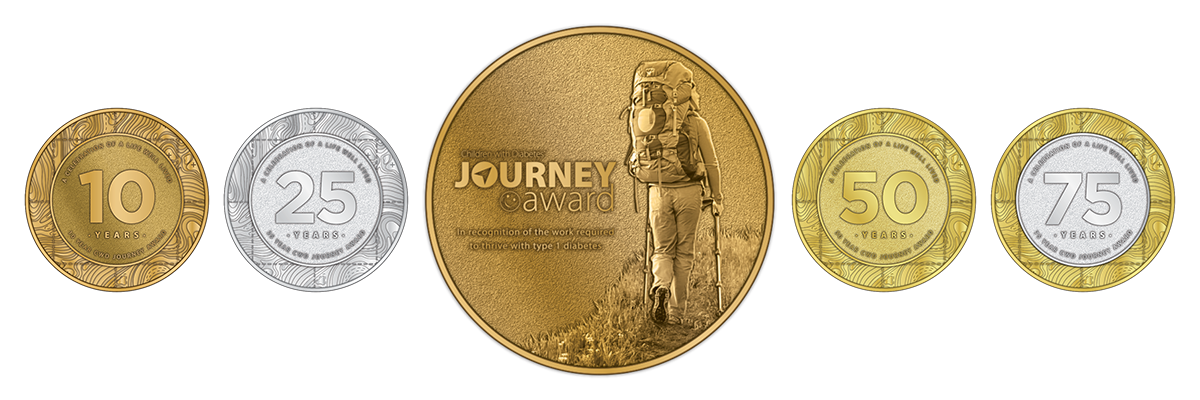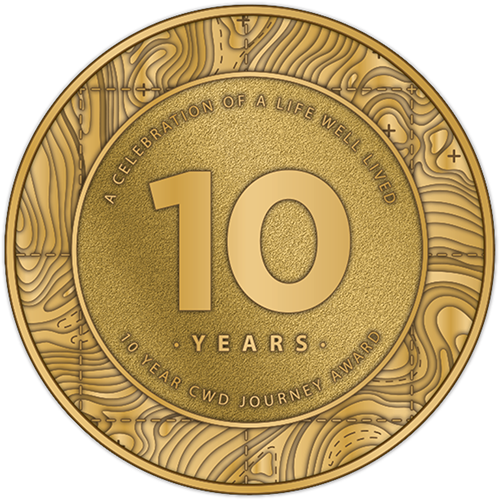
Ashleigh Kraus
My name is Ashleigh Kraus, and on June 29, 2014, I was diagnosed with type 1 diabetes at age 19. In hindsight, I noticed a change in my body months before my diagnosis. I had just completed my freshman year in college, and I noticed I was unable to be as physically active as I was used to. My body was constantly fatigued. Fast forward to a week before my official diagnosis, and the signs and symptoms were clear as day. I could not make it through the night without getting up to go to the bathroom, I was losing weight, I had blurred vision, numbness/tingling in my hand, and a severely dry mouth, to name a few. For every symptom, I had an excuse for why there was not something wrong with me. It seems I went through the denial phase before my diagnosis. The day before I went to the hospital, my family could tell something was seriously wrong. I was sleeping all day and could barely eat. I was in even worse shape when I woke up early the next morning. I insisted I could just see the doctor the next day (it was a Sunday), even though I could barely walk. My parents knew this was a dire situation and took me to the hospital anyway. Thank God they did. I found myself in the ICU in diabetic ketoacidosis (DKA) and renal (kidney) failure. The doctors told my family had we waited any longer, the outcome would have been much different. I believe my diagnosis story is a large part of my diabetes journey because I learned a couple of valuable lessons. One, I am incredibly blessed to be alive and healthy. Even though I have T1D, I choose to view my body as healthy and aim to keep it as healthy as I possibly can. This viewpoint is something that did, and at times, still does not come easy through the journey of living with T1D. The second lesson I learned is to LISTEN to your body and SEEK HELP when you need it. My body gave me the warning signs and I chose to ignore them. This was a mistake the almost cost me my life.
As I adjusted to life with T1D (kind of like a baby giraffe walking for the first time), it became clear how tough this disease can be. I went back to school while still adjusting to my new reality and it was extremely difficult for me. Between the many follow-up doctor’s appointments, diabetes education sessions, receiving an insulin pump, and juggling college courses, I was overwhelmed to say the least and thought about dropping out of school. However, through this struggle, I realized I did not want to continue on my current career path and changed my major. I switched to a degree in Public Health Education with hopes of educating people about diabetes and making a difference in my community. With the support of my family, friends, and advisors, I graduated with my BA in Public Health Education in the Spring of 2017. After many years of gaining experience and earning my Master of Public Health, I can finally say I have a position I dreamed about for years – a Diabetes Program Consultant. I hope to make a difference in the lives of people with diabetes for years to come.
One final important piece to my diabetes journey, thus far, has been learning how to advocate for myself. I began my treatment for T1D with multiple daily injections (MDI) and was on this therapy for about four months before I could switch to an insulin pump. During college, MDI was difficult. It required me to maintain a rigorous schedule that at the time was not feasible for me as a college student. The insulin pump changed my life (after a lengthy battle with insurance, of course). As new and improved technologies and advancements came out for insulin pumps, my love for technology and diabetes care merged as one. Insulin pump therapy worked extremely well for me for many years. In 2021, I started to experience difficulties with my insulin pump therapy. Changing my infusion sites began to give me severe anxiety. I looked into other options and discovered a smart insulin pen (InPen) was an option. I knew this was a decision I needed to make for myself to give my mental health a break. My medical team was skeptical of putting me back on MDI because I had good control of my blood sugar on the insulin pump. After putting my foot down, I gave MDI another go. At my next appointment, my A1C had decreased. My doctor was pleasantly shocked and said she had not experienced a patient improve their A1C by returning back to MDI. Sometimes, we just know our needs better than anyone else and it is important to advocate for those needs – no matter how much insisting needs to be done.
As I reflect on the last 10 years, I find myself thankful. I am thankful for the incredible support I have received from my loved ones. I truly would not be here without it! On this 10 year diaversary, I choose to celebrate the progress. It is hard work being your own organ, and I am not only surviving, but THRIVING. While the hard days still come, they are nothing compared to the success of thriving with T1D.

since 2014

Do you have a story to share about your experiences with diabetes? We want to hear from you! Tell us your story using the form below and we'll consider it for inclusion in the CWD Stories section of our website.